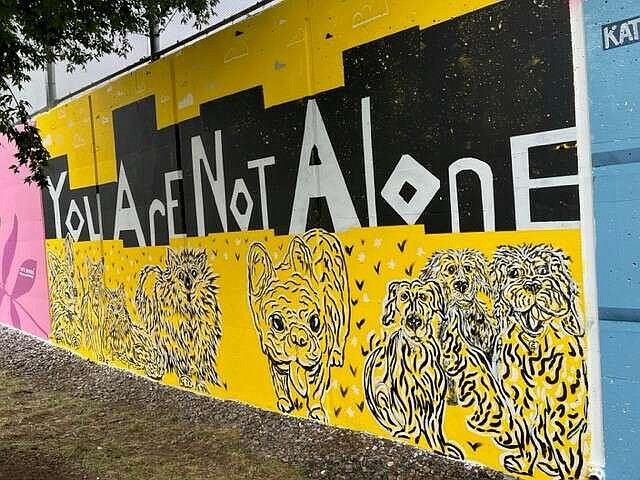House Republicans asked a government watchdog to investigate federal officials' oversight of mental health funding, citing documents showing that more than $3.8 billion intended for emergency coronavirus response and for a 988 suicide and crisis hotline remained unspent as of late last year.
Leaders of the House Energy and Commerce Committee obtained funding documents from the Substance Abuse and Mental Health Services Administration, which helps direct the federal government's mental health initiatives and received an influx of money during the pandemic. The panel found that only 54 percent of emergency coronavirus funds had been spent, and about 17 percent of the money intended to help states, territories and tribes implement the 988 hotline had been spent.
The panel's leaders asked the Government Accountability Office on Tuesday to examine why the money has not been spent more quickly to address mental health needs.
"We have concerns about the nature and pace of using these funds, as well as SAMHSA's ability to administer and oversee this additional funding," Rep. Cathy McMorris Rodgers, R-Wash., the panel's chair, and colleagues wrote to GAO Comptroller General Gene Dodaro in a letter shared with The Washington Post. The Republicans cited SAMHSA's findings that about 1 in 5 Americans suffered from mental illness in 2020 and the agency's warnings that mental health conditions may have worsened during the pandemic.
The GAO said the watchdog was reviewing the panel's request.
The Department of Health and Human Services, which oversees SAMHSA, said the agency had complied with congressional questions about the mental health funding but did not publicly share its responses to congressional oversight. The agency also said that all 988 hotline programs are using funding for "a range of ongoing activities" and can draw down additional money as necessary.
HHS Secretary Xavier Becerra on Wednesday defended the Biden administration's budget requests in a pair of congressional hearings. The requests include about $8.1 billion in annual funding for SAMHSA, a roughly $600 million increase over the fiscal 2023 level.
House Republicans have spent several years investigating how trillions of dollars in emergency pandemic funding has been spent, repeatedly raising questions about money that flowed to smaller agencies such as SAMHSA. The agency historically was budgeted at about $6 billion a year but received an additional $7.8 billion during the pandemic, with lawmakers saying the funds were necessary to address a reported spike in mental health conditions. The agency also received about $1 billion in additional funding to set up the 988 crisis line, which launched in July 2022.
While SAMHSA has designated most of the covid and 988 crisis line funding, states, territories and other intended recipients have yet to spend much of the funds, Republicans found.
For instance, as of Nov. 8, 2023, SAMHSA had directed $8.1 billion of its emergency coronavirus aid to states, but only $4.4 billion had been spent. The agency also had committed $328 million to states and territories for their hotline efforts, but just $58 million had been drawn down. Meanwhile, about $35 million had been designated for hotline efforts across Indian Country, but just $2.6 million had been spent.
The Biden administration has touted its efforts to ramp up the 988 crisis line.
"A lot of the funding has gone to states, territories, tribes, and crisis centers to hire crisis counselors and improve response rates," SAMHSA said in a brief released after the first anniversary of the 988 hotline last year.
Concerns about unspent pandemic money helped squash the Biden administration's attempts to win additional public health funds last year.
Industry experts and officials have said organizations that historically have had limited resources may be overwhelmed by the sudden influx of money for mental health services.
The Mental Health Association of New York City, for example, reported nearly $30 million in revenue in 2017 as it focused on addressing behavioral health issues in the region. The organization subsequently rebranded as Vibrant Emotional Health, and its revenue surged to $125 million in 2022 after the federal government tapped the association to administer the national 988 crisis line. Vibrant did not immediately respond to a request for comment.
Experts cautioned that some of SAMHSA's efforts are significant undertakings. While there had been earlier crisis lines, setting up 988 is "really building a new system," said Jonathan Purtle, director of policy research at New York University's Global Center for Implementation Science, who has studied 988 hotline operations and funding.
Purtle said he could not comment on the committee's findings about the crisis line funding because he had not reviewed SAMHSA's documents. But he noted that the hotline faces ongoing financing challenges, particularly with most states yet to permanently fund the service.
"Our data suggests that with increases in call demand, there is definitely a need for more money to really support 988 implementation and for [it] to be successful," Purtle said.
The GOP-led committee spent much of last year in a long-running fight over obtaining information from SAMHSA, at one point threatening to issue a subpoena if the agency did not comply with its requests.
------
If you or someone you know is struggling or in crisis, help is available. Call or text 988 or chat at 988lifeline.org.

